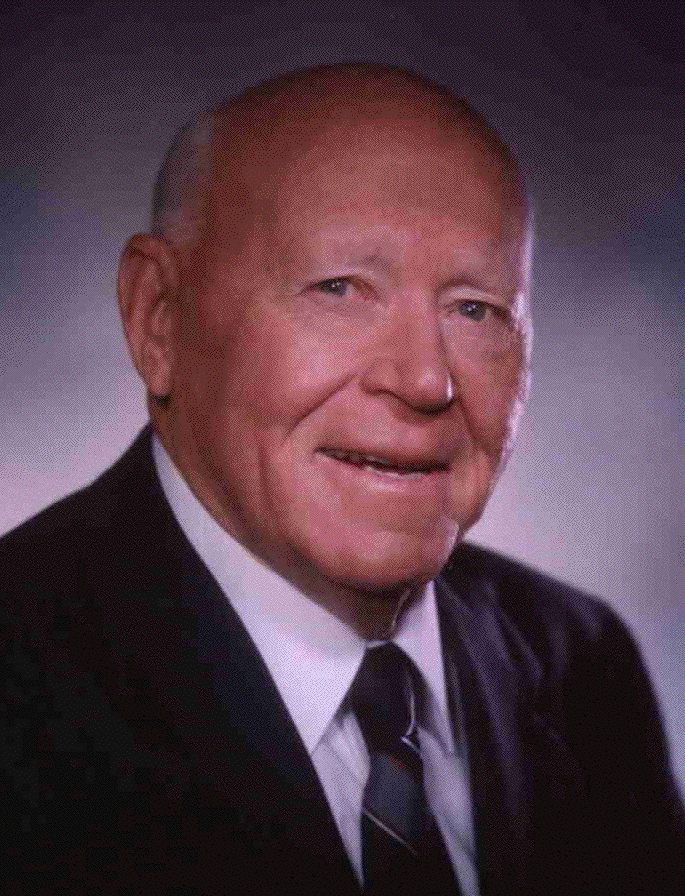Encyclopedia Dubuque
"Encyclopedia Dubuque is the online authority for all things Dubuque, written by the people who know the city best.”
Marshall Cohen—researcher and producer, CNN
Affiliated with the Local History Network of the State Historical Society of Iowa, and the Iowa Museum Association.
SIMPLOT, John Richard: Difference between revisions
(New page: SIMPLOT, John Richard. (Dubuque, IA, Jan. 9, 1909—Boise, ID, May 25, 2008). Potato and computer chip king. Driving around Boise with license plates reading “Mr. Spud,” J.R. Simplot w...) |
No edit summary |
||
| Line 1: | Line 1: | ||
SIMPLOT, John Richard. (Dubuque, IA, Jan. 9, 1909—Boise, ID, May 25, 2008). Potato and computer chip king. Driving around Boise with license plates reading “Mr. Spud,” J.R. Simplot was one of the United States wealthiest agribusinessman. For more than seventy years, Simplot dominated Idaho’s business and political life. In 2006 he and his family were listed at No. 80 on Forbes magazine’s list of richest Americans with a wealth estimated at $3.2 billion. At the time of his death, he was the oldest billionaire on the Forbes 400. | [[Image:JRsimplot.gif|left|thumb|250px|John Richard Simplot]]SIMPLOT, John Richard. (Dubuque, IA, Jan. 9, 1909—Boise, ID, May 25, 2008). Potato and computer chip king. Driving around Boise with license plates reading “Mr. Spud,” J.R. Simplot was one of the United States wealthiest agribusinessman. For more than seventy years, Simplot dominated Idaho’s business and political life. In 2006 he and his family were listed at No. 80 on Forbes magazine’s list of richest Americans with a wealth estimated at $3.2 billion. At the time of his death, he was the oldest billionaire on the Forbes 400. | ||
Simplot left home at the age of fourteen. He bought interest-bearing [[SCRIP]] paid to teachers for 50 cents on the dollar and used that as collateral on a bank loan to purchase 600 hogs at $1 each. He made $7,500 the following year selling the hogs when the price of pork was rising. | Simplot left home at the age of fourteen. He bought interest-bearing [[SCRIP]] paid to teachers for 50 cents on the dollar and used that as collateral on a bank loan to purchase 600 hogs at $1 each. He made $7,500 the following year selling the hogs when the price of pork was rising. | ||
Revision as of 00:15, 1 August 2008
SIMPLOT, John Richard. (Dubuque, IA, Jan. 9, 1909—Boise, ID, May 25, 2008). Potato and computer chip king. Driving around Boise with license plates reading “Mr. Spud,” J.R. Simplot was one of the United States wealthiest agribusinessman. For more than seventy years, Simplot dominated Idaho’s business and political life. In 2006 he and his family were listed at No. 80 on Forbes magazine’s list of richest Americans with a wealth estimated at $3.2 billion. At the time of his death, he was the oldest billionaire on the Forbes 400.
Simplot left home at the age of fourteen. He bought interest-bearing SCRIP paid to teachers for 50 cents on the dollar and used that as collateral on a bank loan to purchase 600 hogs at $1 each. He made $7,500 the following year selling the hogs when the price of pork was rising.
Using his hog money, Simplot entered the potato business planting certified potato seed rather than using the practice of culling potatoes. He purchased an early electric potato sorter and by 1940 and bought or constructed thirty-three potato warehouses along the plains of the Snake River from Idaho Falls to Vale, Oregon.
During World War II, Simplot supplied U.S. troops with dried potatoes and vegetables. He began buying cattle, ranches, and timberland. Foreseeing the growing demand for fertilizer, he purchased phosphate reserves and constructed a production plant in Pocatello, Idaho.
Following World War II, Simplot’s food production business began freezing and canning its products and developed the first commercially viable frozen French fries in the world. He teamed up with McDonald’s in the 1960s to supply the fast-food giant with fries. In 2008 Simplot’s company continues to sell one-third of all French fries sold in the United States. Simplot’s businesses, still family-owned, manufacture agriculture, horticulture and turf fertilizers; animal needs and seeds; foods including fruits, potatoes and other vegetables; irrigation products, and industrial chemicals.
In 1980 gambling on new industry, he gave Ward and Joe Parkinson $1 million for 40% of what became Micron Technology, Inc. He later supplied more money when it was needed to help the company construct its first manufacturing plant. The company became a major producer of DRAM, dynamic random access memory, chips used to store information in personal computers and NAND flash memory used in memory cards and USB devices.
Simplot credited his long-life to staying free of tobacco and alcohol. He once rewarded workers who quit smoking with $200 and paid a couple to travel to Idaho schools with exhibits of black lungs in bottles.


